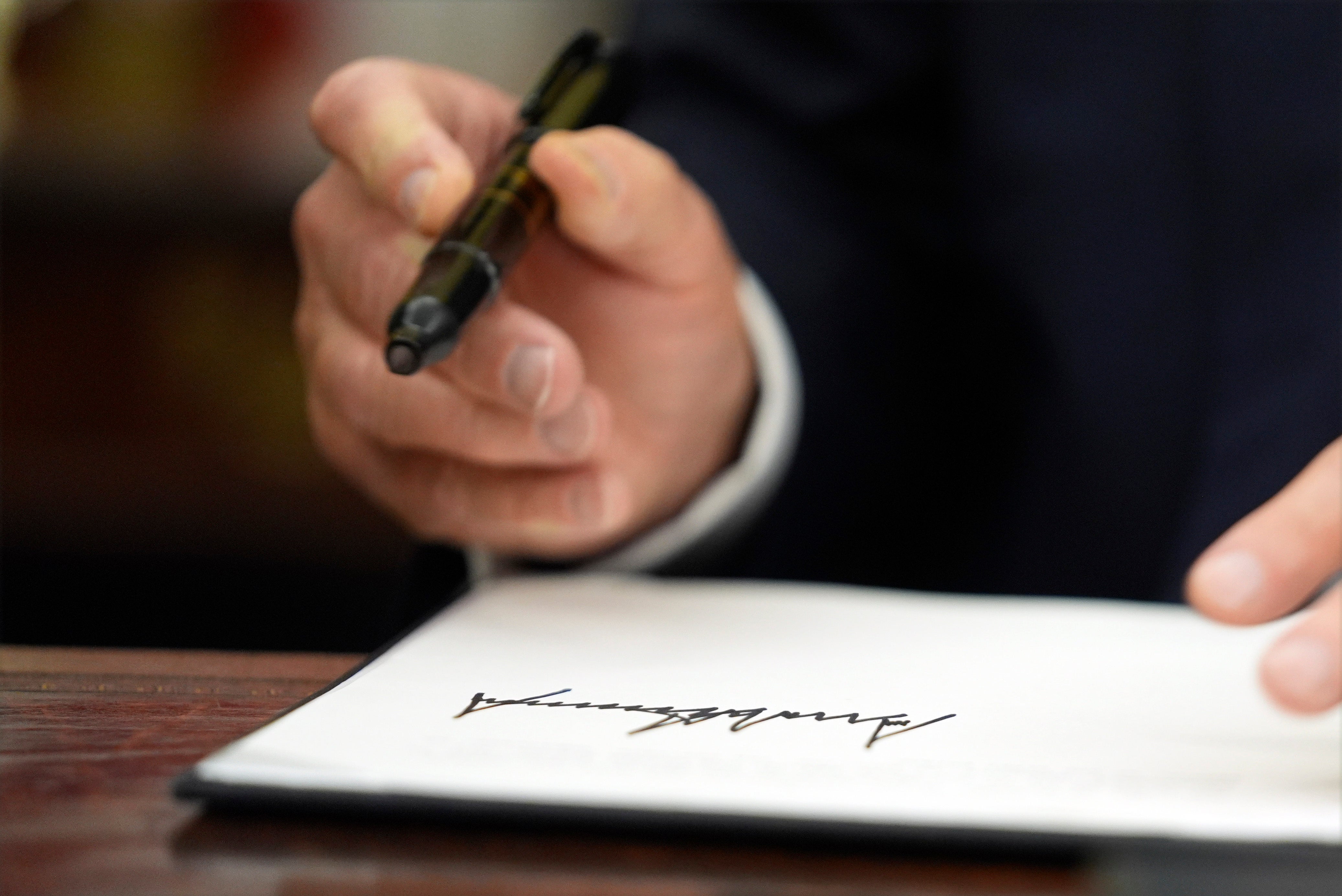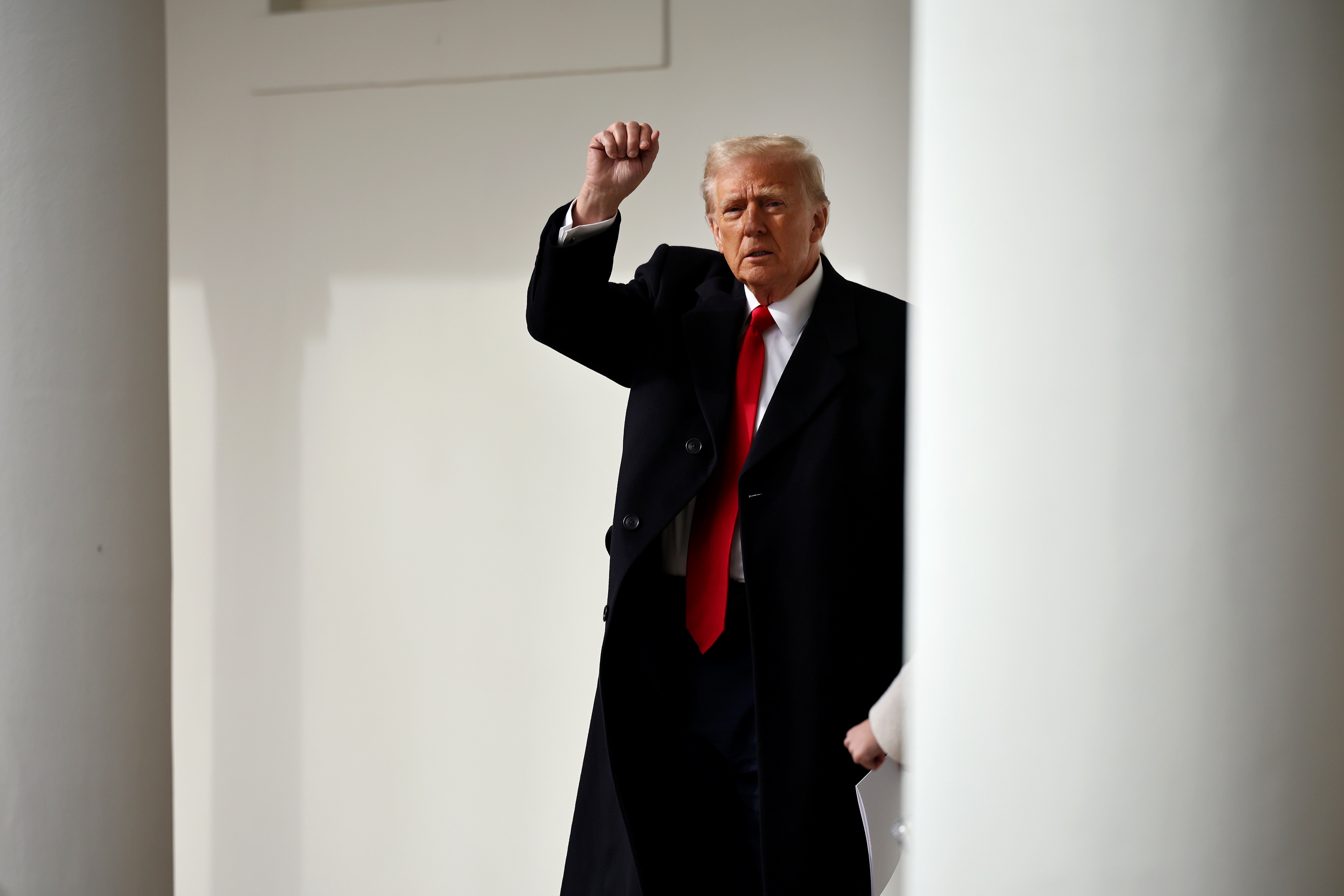President Donald Trump signed a batch of executive orders on inauguration day to begin implementing his conservative agenda but some of his most ambitious – revoking birthright citizenship and denying the identity of transgender people – are likely to face legal challenges.
Executive orders are mandatory declarations from the president to federal agencies or the military about how they should use resources given to them by Congress or operate within the limits of the U.S. Constitution. It is typical for presidents to sign executive orders upon taking office to display an eagerness to begin working.
But Trump has made it clear, he plans to utilize his presidential authority to carry out his agenda to the fullest extent possible. Already, he has set the record for most executive orders signed on the first day in office.
However, some of his executive orders face legal challenges with lawmakers disputing Trump’s scope of authority. Now, many are left wondering if there is any way to stop or challenge an executive order.
Can executive orders be blocked?
Like all laws, executive orders are subject to judicial review and may be blocked if they violate the Constitution or if Congress passes legislation that directly interferes with them.
Executive orders do not require congressional approval but Congress can pass laws refusing to fund the order - thus thwarting its impact. For example, Congress could refuse to fund Trump’s newly formed Department of Government Efficiency to stifle its authority.
Congress can also pass legislation that invalidates an executive order, however, if the president vetoes the law, then the House and Senate need a two-thirds majority to override that veto.
It is unlikely this will occur under Trump, though, because the House of Representatives and Senate are both Republican-dominated.
Courts may also temporarily block executive orders from taking effect if they feel the order needs to be reviewed for constitutionality.

Can executive orders be overturned?
A president can revoke an executive order and courts can overturn an order if they find it violates the Constitution.
Trump revoked several of former president Joe Biden’s executive orders upon taking office on Monday including pulling the U.S. out of the Paris Climate Agreement, removing protections for transgender people and lifting requirements for federal agencies to promote voter registration.
Courts may also overturn an executive order if they determine it violates the Constitution. Trump’s executive order revoking birthright citizenship for those born to immigrant parents appears to be a direct violation of the 14th Amendment that gives any person born in the U.S. citizenship status.

How likely will Trump’s executive orders hold up?
Many of Trump’s executive orders – particularly those aimed at restricting immigration – are likely to face legal challenges from states, individuals and advocacy groups.
His “remain in Mexico” policy faced lawsuits when it was first enacted in 2019 with federal courts pausing its enforcement while they reviewed its legality. Ultimately, Biden rescinded the policy during his administration but with Trump reinstating it it is likely to face more lawsuits.
Trump’s executive order determining the government may only identiy two genders is also likely to face legal pushback. Federal judges around the U.S. have determined that prejudice against trans people is a form of discrimination per Supreme Court precdent.
Another gray legal area is around the order that pauses the TikTok ban from taking effect for 75 days. Congress passed the legislation that bans TikTok with the provision that the president could delay the ban 90 days so long as a viable deal was being worked out. The Supreme Court upheld the legislation making it unclear if Trump has the authority to pause the ban.







